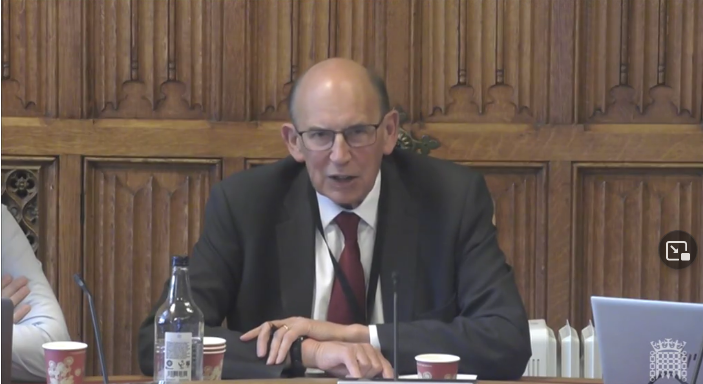Brexit & Beyond newsletter
20 March 2023
Welcome to the 20 March 2023 Brexit & Beyond newsletter
On Wednesday, a vote will be held in the House of Commons on the Stormont Brake. Downing Street says this will be considered as a vote on the Windsor Framework as a whole. The European Parliament debated the Framework last week, and the Lords Sub-Committee on the Protocol has launched an inquiry into the Framework. Politicians attended St Patrick’s Day celebrations in the US, where the Framework was a subject of discussion.
UK Parliament to give its view on the Windsor Framework
On Wednesday (22 March) the House of Commons will debate a motion “to approve a Statutory Instrument relating to the Stormont Brake in the Windsor Framework.” Downing Street has said this vote will be treated as a vote on the overall Windsor Framework. The Statutory Instrument on the operation of the Stormont Brake will be published today. Under the new mechanism, when new or amended EU laws on customs, goods and agri-food are introduced, which would apply to NI under the Protocol, the Brake could be pulled (and the laws potentially disapplied) with the support of 30 MLAs from at least two parties. The EU and UK texts on the Brake set out various conditions and limitations for its use. The Institute for Government has published an explainer on the Stormont Brake.
The Lords Sub-Committee on the Protocol has launched an inquiry into the Windsor Framework. It has invited the Foreign Secretary to give evidence and aims to publish its findings by the summer. Written evidence can be submitted to the committee by 2 May. On Wednesday, the committee will hold its first evidence session with legal and policy experts.

Lord Jay of Ewelme, who chairs the Sub-Committee on the Protocol on Ireland/Northern Ireland | Source: UK Parliament
The Commons Library has published a briefing on the Windsor Framework, covering the changes and next steps to implement the deal.
The Prime Minister has declined to give evidence on the Framework to the Commons European Scrutiny Committee (ESC). The Committee has published a report on this matter, saying it has “longstanding concerns and questions” about the operation of the Protocol. The PM has stated he would be happy to answer questions on the Framework at the Liaison Committee, suggesting instead that NI Secretary of State Chris-Heaton Harris could give evidence to the ESC. The Committee has urged the PM to not agree the deal before the end of March, saying, “The House should have the opportunity for meaningful input into the shape of the deal, well in advance of sign off by the WAJC [EU-UK Joint Committee] and without the threat of artificial Government or EU deadlines.” The Committee highlights areas of concern regarding the Framework, including the amount and extent of EU law that would continue to apply in Northern Ireland, regulatory divergence between GB and NI, and the jurisdiction of the EU Court of Justice.
Views from the European Union
The European Parliament debated the Windsor Framework on Tuesday 14 March and also voted to adopt an implementation report on the Withdrawal Agreement. MEPs welcomed the recent EU-UK agreement, and the UK’s announcement that it will not proceed with the NI Protocol Bill. The report’s rapporteur Pedro Silva Pereira commented, “The recently announced Windsor Framework for a flexible and effective implementation of the NI Protocol is an important step in the right direction, and we now expect its full implementation. This new joint political understanding gives us reason to believe that we can turn an important page in EU-UK relations.” European Commission Vice-President Maroš Šefčovič addressed MEPs. He said the Framework was “a way forward that protects the legitimate interests of both the EU and the UK...[the] solutions respond to the concrete needs of people and businesses in Northern Ireland, but they also have been carefully crafted so as to ensure that the EU Single Market is protected. In particular, the role of the European Court of Justice has not changed. It remains the sole and final arbiter of EU law. But there is now a strong political commitment to solve future challenges together before they turn into disputes.”

European Commission Vice-President Maroš Šefčovič addressing MEPs | Source: European Union 2023 - Source: EP
Danuta Hübner (EPP) said the Framework “strikes a careful balance between facilitations for the UK and effective safeguards for the EU single market.” David McAllister (EPP) emphasised that the EP “will deliver on the legislative procedures [to implement the Framework] as quickly as possible.” Barry Andrews (Renew) remarked, “we need more patience so that the political participants in Northern Ireland can take the time to have the discussions necessary in order to fully understand and clarify the implications of this new framework that is going to create a constitutional architecture in Northern Ireland that is new.” Andrews said he would be bringing MLAs to Brussels and Strasbourg in the next months.
In its report on the Withdrawal Agreement, the EP raised concerns about rights of EU citizens living in the UK with ‘pre-settled status’, and the impact of the UK’s ETA system which it says “would not be fully in line with Article 2 of the Protocol.” The issues around pre-settled status were debated in the Lords on Monday, where the Government says it is working to implement the judgement of the High Court. The Court found it was unlawful for citizens to lose their rights if they failed to apply for settled status on time.
Meanwhile, an EU law to empower the European Commission impose trade restrictions if the UK breaches its obligations in the Withdrawal Agreement or Trade and Cooperation Agreement was signed into law on 15 March. Seán Kelly MEP, one of the rapporteurs for the regulation, said “With EU-UK relations in a better place, this is a mechanism that I hope we never have to use.”
Tomorrow, the EU General Affairs Council, made up of ministers from member states, is expected to adopt two decisions on the EU’s position in the Joint Committee and Joint Consultative Working Group in relation to the Windsor Framework.
Politicians share views on the Framework in the US
Politicians travelled to the US last week for St Patrick’s Day celebrations. The recently announced Windsor Framework was expectedly the subject of some discussion. US President Joe Biden said he "very strongly supports" the Framework. He met with the leaders of Northern Ireland’s five main political parties. DUP Leader Sir Jeffrey Donaldson said, “I haven't been put under any pressure during my time here in Washington. I think people are actually very understanding of the need for unionist parties in particular to assess what the Windsor Framework is, what it means, to examine the legal text and the legislation that will be used to implement that framework.” On Tuesday, Donaldson set out his current assessment of the deal: “there remains key areas of concern which require further clarification, re-working and change as well as seeing further legal text.” A spokesperson for the Prime Minister said he believes “this is the best deal that is available to Northern Ireland.”
Giving a speech to the National Press Club in Washington DC Sinn Féin Vice-President Michelle O’Neill emphasised that the Framework “mitigates against the worst impacts of Brexit on our island…[it] gives us huge competitive advantage as a gateway to Europe for the sale of goods to two of the world’s largest markets unimpeded.”
Implications of EU law applying in NI
The EU has amended its regulation to limit the levels of arsenic in baby food. The BBC’s Economics and business editor John Campbell explains how this change will apply to producers in Northern Ireland under the Protocol, but GB-produced baby foods, with potentially higher arsenic residues, will still be permitted to enter and be sold in NI. QUB academics Dr Viviane Gravey and Dr Lisa Claire Whitten have commented on the risk that NI producers are put at a competitive disadvantage in their own market. The trade body, the British Specialist Nutrition Association (BSNA) has said it will follow the EU’s rules "to protect the right to export to all EU countries". Campbell notes the ‘Brussels effect’: “Brexit gives the UK the right to set its own regulatory standards but, in practice, some companies may just manufacture to a higher EU standard to protect their access to that market”.
Other news
- In last week’s budget, the Chancellor Jeremy Hunt announced that from 2024, the UK medicines regulator (the MHRA) will give “rapid, often near-automatic sign-off for medicines and technologies already approved by trusted regulators in other parts of the world such as the United States, Europe and Japan.” Mark Dayan of the Nuffield Trust comments that the policy is “an answer to the post-Brexit problem that the UK was in fact falling behind other countries, approving slower, but not exactly a bold plan for divergence.” Under the Windsor Framework, there was a concern that medicines approved in the Republic of Ireland would not be available in Northern Ireland.
- The BBC reports on concerns from community groups about the loss of EU funds from 31 March. The Government has promised that replacement funding through the UK Shared Prosperity Fund would match previous EU funding. It is overseen by the UK Department for Levelling Up, Housing and Communities. Previously then NI Finance Minister Conor Murphy raised concerns about the replacement funding, saying “it has not been subjected to screening under our equalities legislation, it will operate directly from Whitehall bypassing Executive Departments, it will deliver too little money, it risks duplication of provision and it lacks alignment to our local priorities.”




